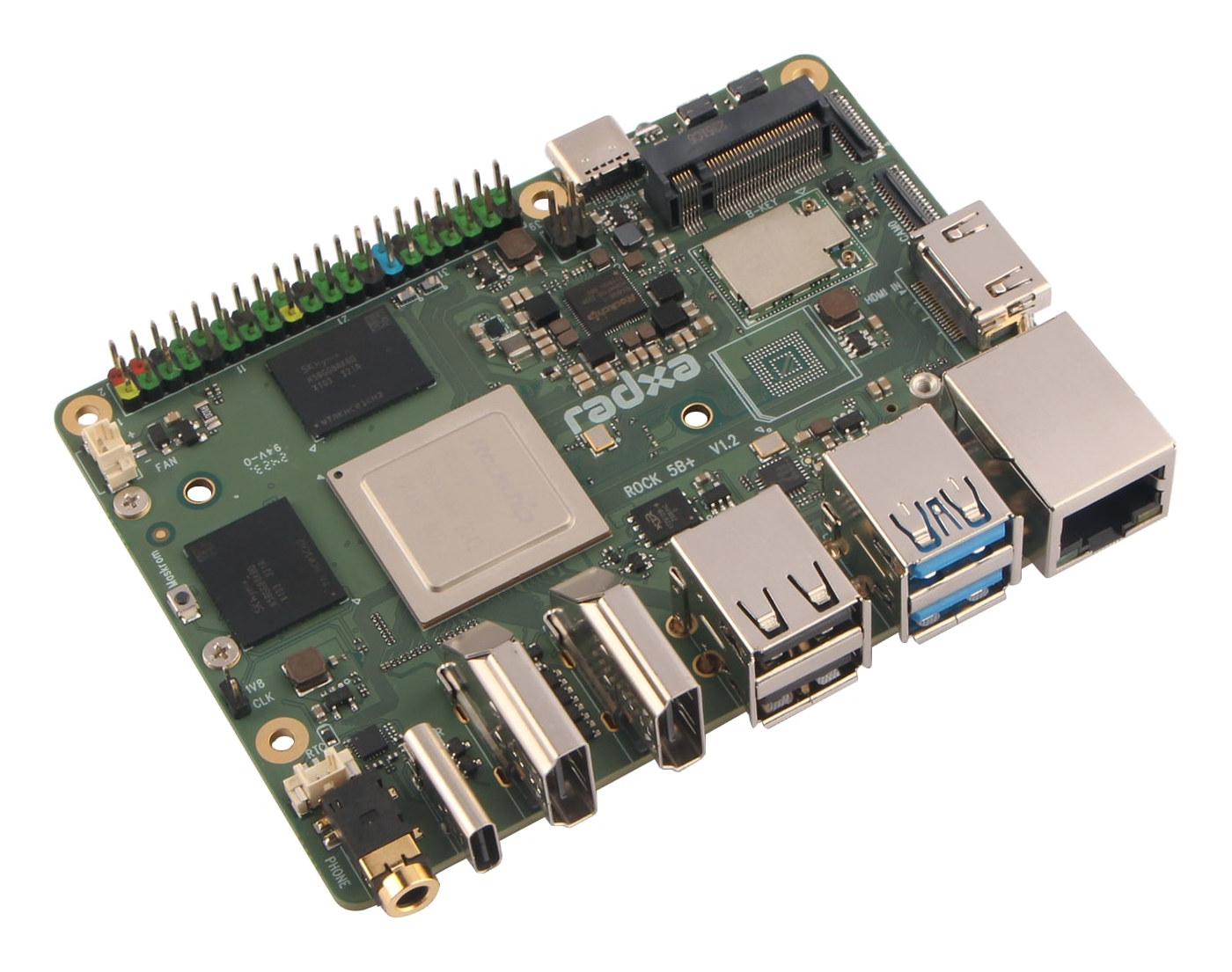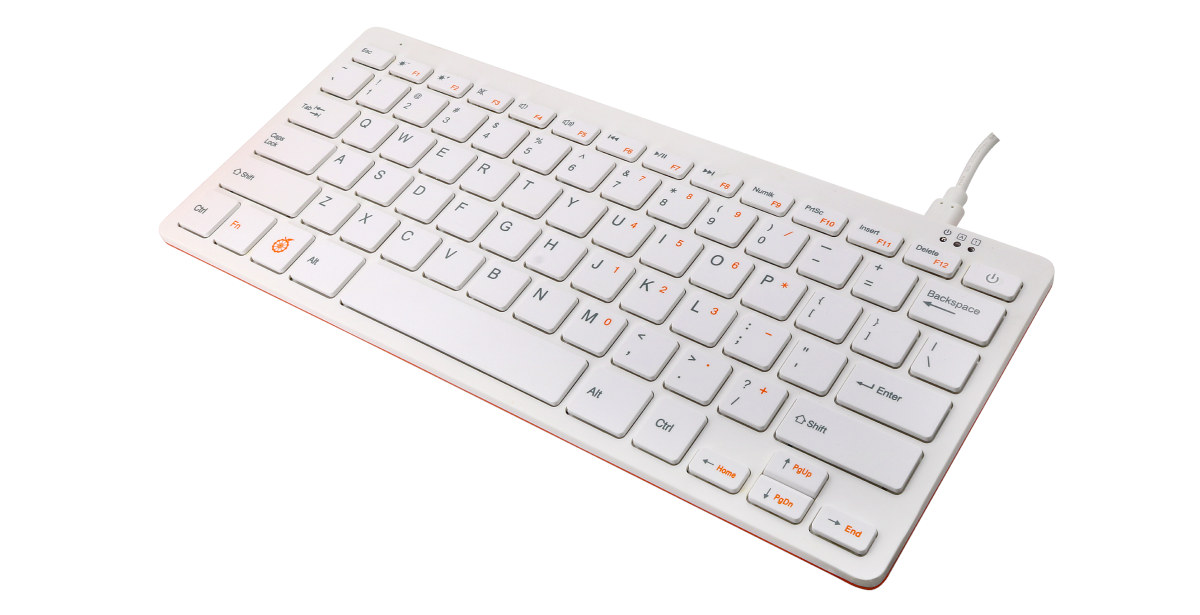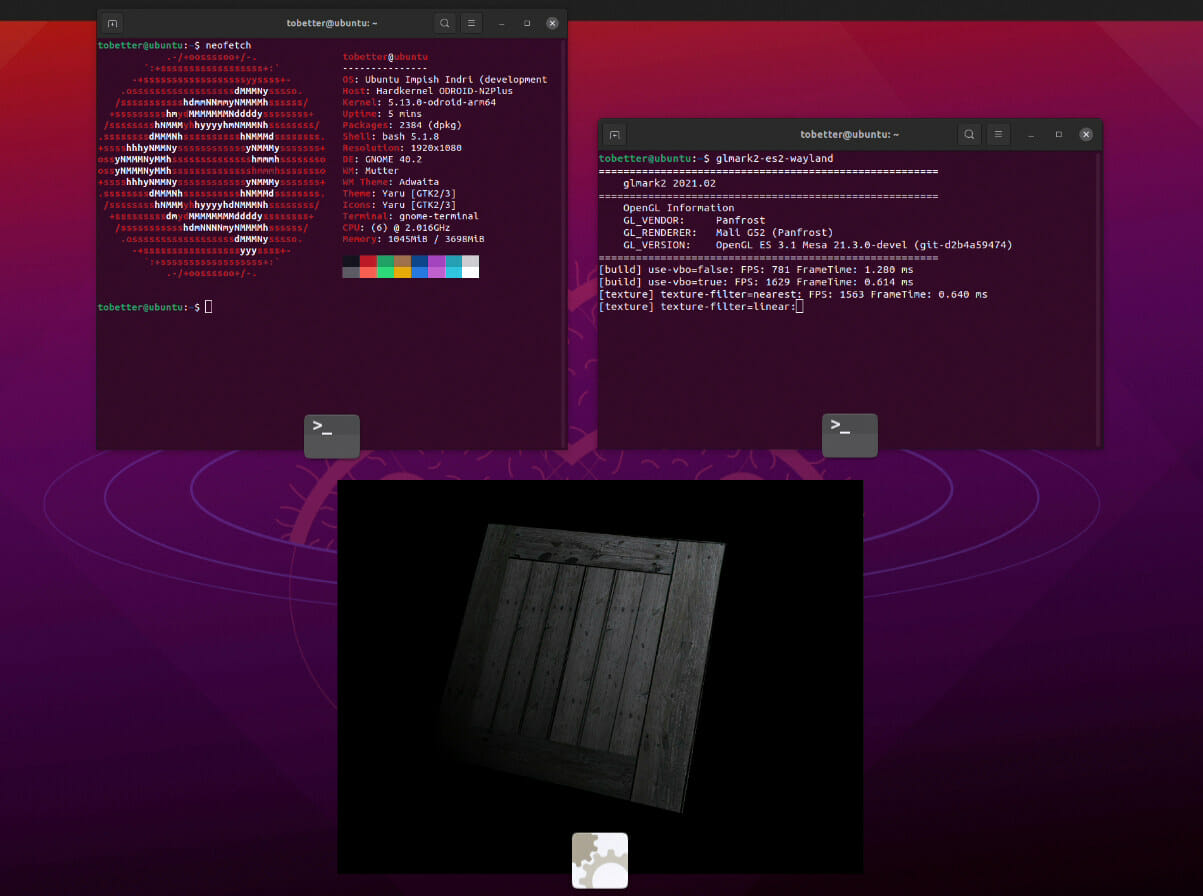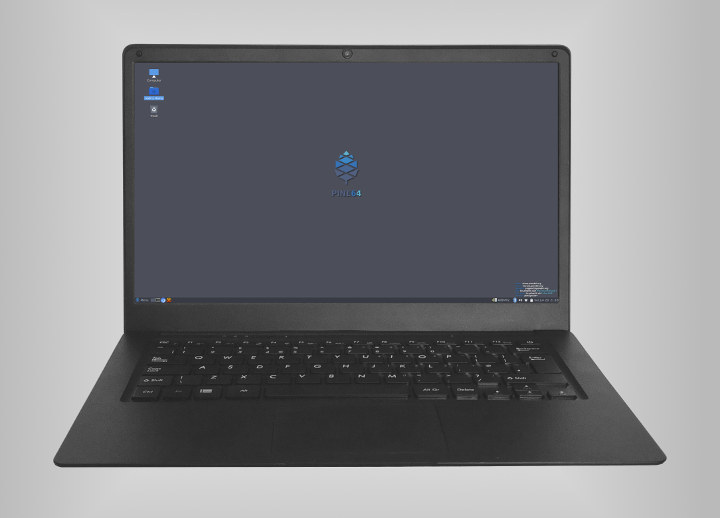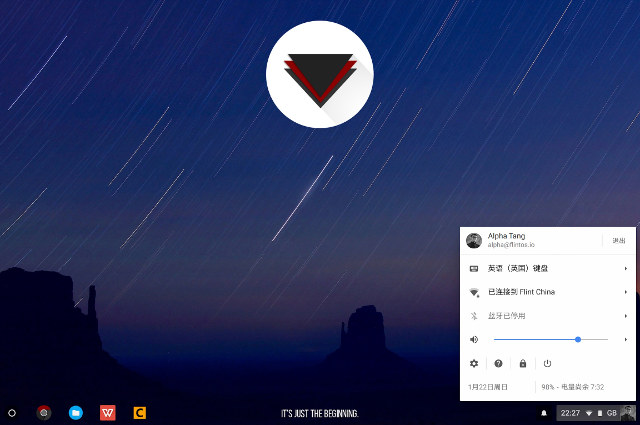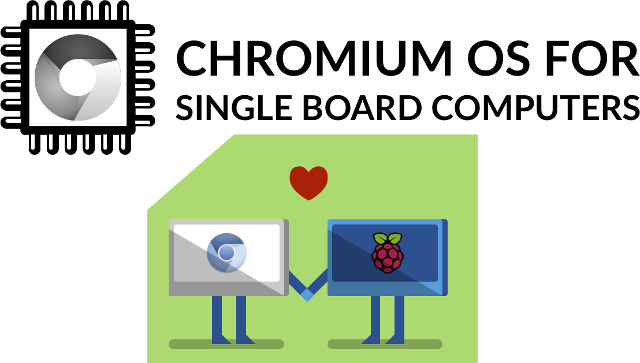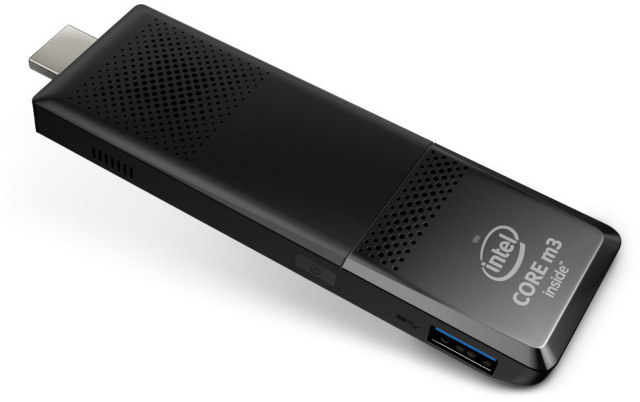The Radxa ROCK 5B+ (“ROCK 5B Plus”) is an upgrade to the Rockchip RK3588-powered ROCK 5B Pico-ITX SBC with the same form factor but various changes including a switch from LPDDR4x to LPDDR5, optional built-in eMMC flash, and an onboard WiFi 6 and Bluetooth 5.2 module instead of one connected through an M.2 Key-E connector. Other changes include replacing the M.2 Key-M PCIe Gen 3 x4 socket with two M.2 Key-M PCIe Gen3 x2 sockets, adding a SIM card slot and M.2 Key-B socket for 4G LTE or 5G cellular connectivity, adding an extra USB-C port for power only (was multiplexed with USB-C Display Port connected in ROCK 5B), and the HDMI input relies on a full-size HDMI port instead of a micro HDMI port. Other small changes can be found in the specifications below with differences highlighted in bold and strikethrough. Radxa ROCK 5B+ specifications: SoC – Rockchip RK3588 […]
Orange Pi 800 Keyboard PC – A Raspberry Pi 400 alternative powered by Rockchip RK3399
There’s now a Raspberry Pi 400 alternative with the Orange Pi 800 Keyboard PC that offers a very similar design, but it is powered by a Rockchip RK3399 hexa-core Cortex-A72/A53 processor. Like the Raspberry Pi model, the Orange Pi 800 comes with 4GB RAM, Gigabit Ethernet, dual-band WiFi 5 and Bluetooth 5.0, two USB 3.0 ports, and one USB 2.0 port, but it also adds 64GB on-board flash storage and features one full-size HDMI port capable of 4Kp60 resolution plus a VGA port, instead of two micro HDMI ports. Orange Pi 800 specifications: SoC – Rockchip RK3399 hexa-core big.LITTLE processor with 2x Arm Cortex-A72 cores up to 1.8GHz, 4x Arm Cortex-A53 cores up to 1.4GHz, and an Arm Mali-T860MP4 GPU System Memory – 4GB LPDDR4 Storage – 64GB eMMC flash, microSD card slot Video Output HDMI 2.0 port up to 4Kp60 VGA port up to Full HD resolution Audio 3.5mm […]
ODROID-N2+ SBC gets Ubuntu 21.10, Chromium OS with Panfrost open-source GPU driver
Panfrost open-source driver for Arm Mali Bifrost and Midgard GPUs has come a long way, and Hardkernel’s ODROID-N2+ board now supports Ubuntu 21.10 and Chromium OS with 3D graphics acceleration through the Panfrost driver. As a reminder, ODROID-N2+ is a single board computer powered by an Amlogic S922X Rev.C processor clocked at 2.4GHz with an Arm Mali-G52 GPU, with up to 4GB RAM, and which comes with HDMI 2.0, Gigabit Ethernet, four USB 3.0 ports, plus a GPIO header. ODROID-N2+ with Ubuntu 21.10 + Panfrost Ubuntu 21.10 Impish Indiri is supposed to be released on October 14, 2021 together with Gnome 40, but Hardkernel released a development version as early as August, with Linux 5.14 and Panfrost GPU acceleration as you can see from the screenshot above. The Ubuntu 21.10 image for ODROID-N2+ and the earlier ODROID-N2 SBC cannot be found in the Wiki just yet, but should be there […]
The Case for Running Chromium OS on IoT Devices
The concept of Chromium OS for IoT was presented by Linaro Veteran Khasim Syed Mohammed at Linaro Connect 2019, In his presentation, he talked about the possibilities and advantages of using Chromium OS for IoT devices. This approach looks promising since it’s running on a Linux Kernel base, and Chromium OS uses a lightweight graphics stack that relies on Linux DRM APIs. This may help to create an IoT device with a graphics interface, without consuming too many hardware resources. Why Chromium OS From the architecture front, chromium OS has impressive advantages compared to other lightweight Linux operating systems, such as Direct Rendering Manager, support for web-based applications, etc… Graphics Stack In Linux-based operating systems, most of the time the graphics/display stack is handled by the X-Window system (Xserver and clients). This increases the complexity of development, consumes a large number of hardware resources and increases the product development life […]
PineBook Pro Arm Linux Laptop now up for pre-order for $199.99
Pine64 unveiled a Pinebook Pro laptop prototype at FOSDEM 2019 as an update to the original Allwinner A64 powered Pinebook laptop, but instead of just being a toy to play with, Pinebook Pro aimed to be used as a daily driver thanks to a relatively powerful Rockchip RK3399 processor combined with 4GB RAM, and 64/128GB storage, and equipped with a 14″ Full HD display all for a target price of $200. Last May, we noticed some good progress on the software development side with a demo showcasing Ubuntu & Debian with MATE desktop, 4K video playback, 3D graphics acceleration, and USB-C video output. The good news is that Pinebook Pro has just launched and can be pre-ordered for $199.99 on Pine64 store. [Update: If you are an existing forum member, you may want to redeem your coupon here] Pinebook Pro laptop specifications: SoC – Rockchip RK3399 big.LITTLE hexa-core Arm Cortex […]
Flint OS is a Chromium OS Build for Raspberry Pi & Firefly-RK3288 Boards
Chromium OS for SBC aimed to bring Chromium operating systems to low cost development boards such as the Raspberry Pi 3 board, but the website is now down, and the developer announced he had stopped working on it several months ago due the hardware limitations of the Raspberry Pi 3 board. But others decided it was still worth the effort, and created Flint Innovation company (based in UK/China) to develop Flint OS, a build of Chromium OS with optimizations for Raspberry Pi 3 and Firefly-RK3288 boards with more boards likely coming soon. The developers also provide an x86 image, but after asking more details, it turns out they only changed the boot splash screen for now on the x86 image, with most of the early work done on Raspberry Pi board: At this moment our public Flint OS releases are still pretty much vanilla Chromium OS (we changed the boot […]
Chromium OS for SBC Aims to Turn Popular Development Boards into Chromeboxes
A team of developer has come together last December in order to provide Chromium OS, the open source project which Chrome OS is based on, to single board computers such as Raspberry Pi boards. So far, they’ve provided Chromium OS images for Raspberry Pi 2 & 3, but more boards should be supported in the future. The latest version 0.5 release is said to be usable, but WiFi, Netflix, and HTML5 video are not working. The installation procedure is standard. You simply need to download and uncompress the archive (e.g. SamKinison_v0.5_Pi3_16GB.tar.xz), and dump it on a micro SD card with Win32DiskImage or dd. They have released different images for Raspberry Pi 2 & 3, and different SD card sizes (2GB and 16GB). Chromium OS is using 12 partitions, so that may be why they don’t provide a single image and resize the file system during the first time. You can […]
Intel Core m3 Skylake Compute Stick Benchmarked, Tested with Ubuntu 16.04 and Chromium OS
Intel unveiled five new Compute Sticks for 2016, with two Cherry Trail models, and three Skylake Core M models namely STK2M3W64CC and STK2MV64CC based on Intel Core m3-6Y30 processor, as well as STK2MV64CC with a more powerful Core m5-6Y57 vPRO processor. Ian Morrison (Linuxium) managed to get an early sample of STK2M3W64CC running Windows 10 on 4GB RAM and 64GB storage, and posted some benchmarks, as well as results of his experimentations with Ubuntu and Chrome OS in the Intel section of G+ MINI PCs community and his own website. He started by running some standard benchmarks in Windows 10 including CrystalDiskMark (storage performance), Passmark8, and 3DMark, and while the storage performance is underwhelming, the processor is clearly and noticeably faster than Braswell, and Cherry Trail processors in terms of CPU and GPU performance based on comparisons with Tronsmart Ara X5 (x5-Z8300), Kangaroo Mobile Desktop (x5-Z8500), Voyo V3 (x7-Z8700), and […]


